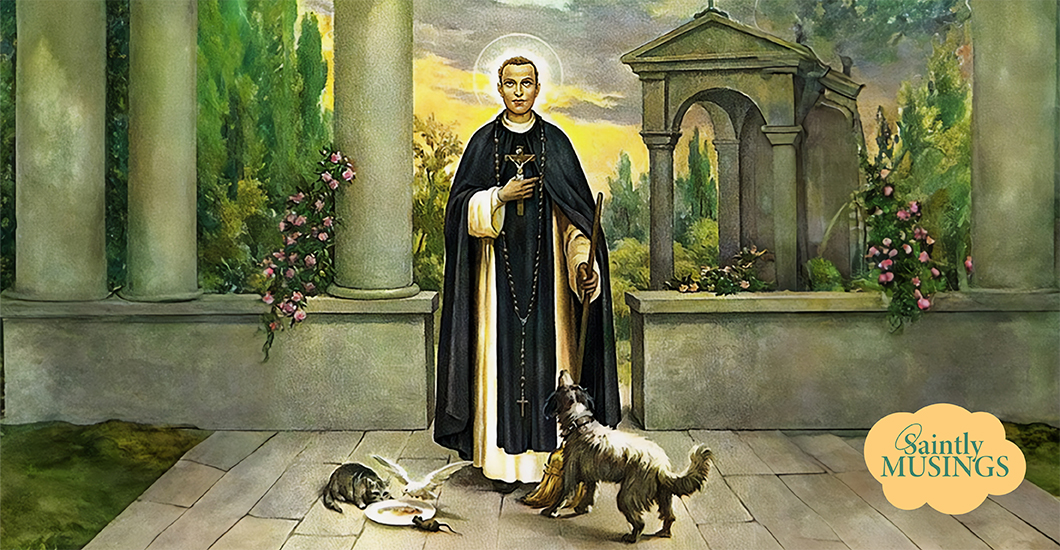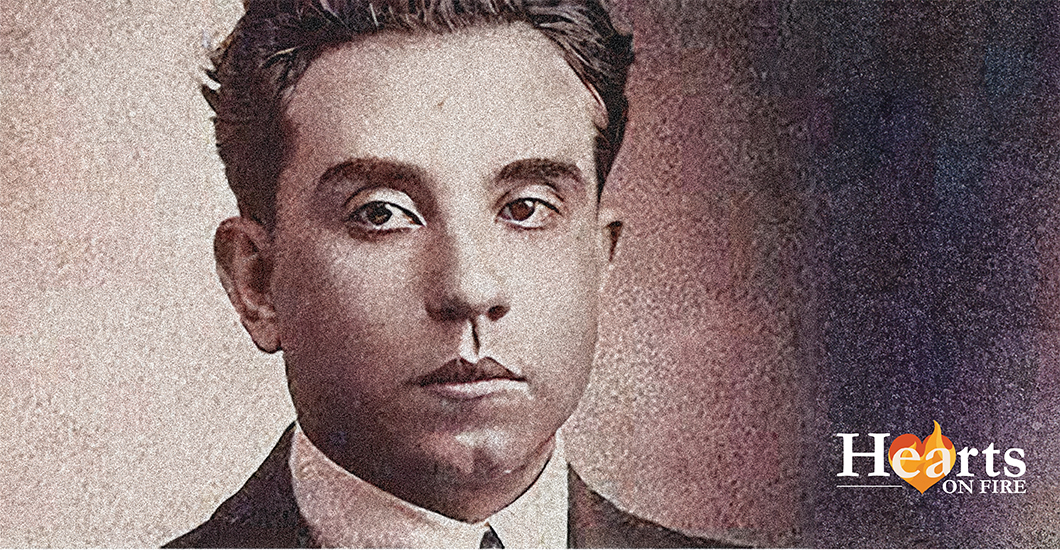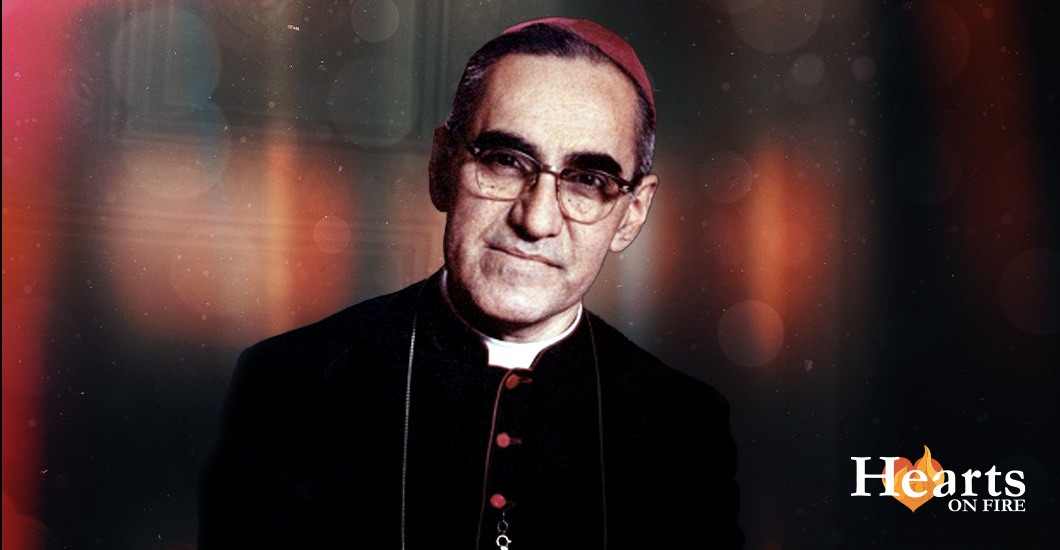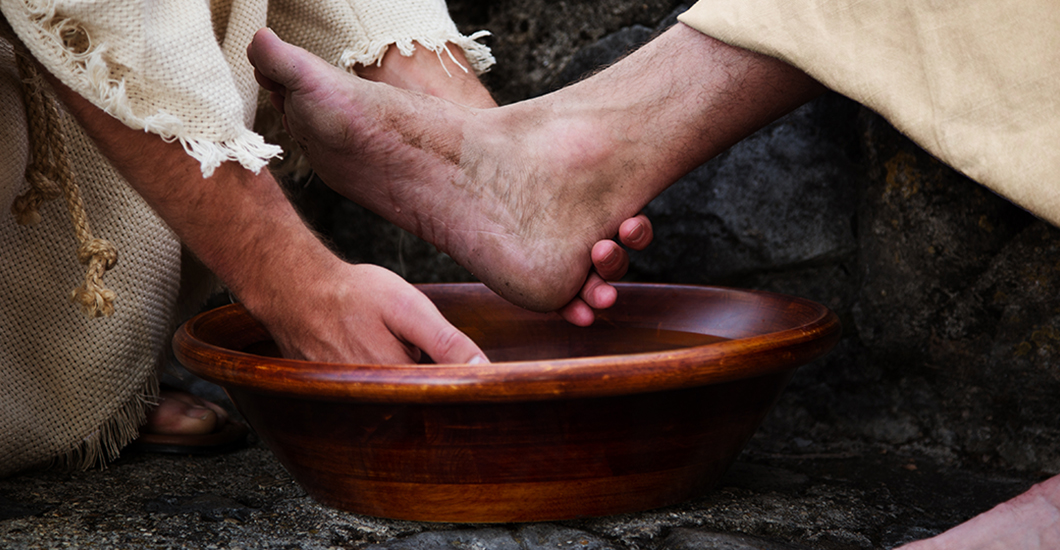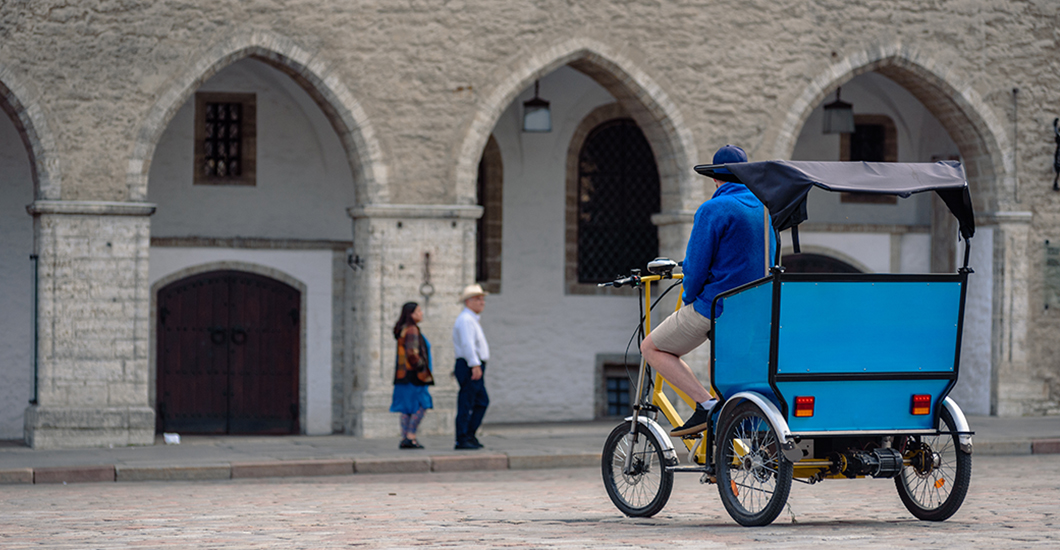Trending Articles
Should We Care?
A blaring home siren was ripping through the stillness of the night. I woke up with a start. My first instinct was one of frustration, but as the moments passed and the siren continued wailing across the neighborhood, I realized there was something amiss.
More from curiosity than bravado, I went outside to get a better look. Seeing my neighbor John working under the hood of his car, I called out and asked about the siren, but he seemed not to hear it at all. He simply shrugged: “Those things go off all the time…it’ll turn itself off in a few minutes.”
I was confused. “But what if someone is breaking into the house?”
“Well, if they have their alarm serviced by the alarm company, someone will come around in a little bit to check on it. But it’s probably just nothing. Like I said, they go off all the time for the craziest reasons. Lightning storms, a car backfire…who knows why?”
I went back into my house and looked at the alarm panel on the wall near our front door.
What good is an alarm if no one pays any attention?
How often is the Gospel message heard across our neighborhoods and our cities like a voice crying in the wilderness, an alarm warning of impending danger echoing through the night? “Turn back to God,” it exhorts. “Repent. Ask for His forgiveness.”
Yet many of us just shrug our shoulders, turn away, and continue fiddling under the hoods of our cars, content with our lifestyle, relationships, and comfort zones.
“Hey, don’t you hear it?” Every now and then someone interrupts. The response would probably be: “Been hearing it ever since I was a kid. But don’t worry, it’ll turn itself off in a few minutes.”
“Seek the Lord while He may be found. Call upon Him while He is near.” (Isaiah 55:6)

Richard Maffeo was born into a Jewish home; after thirty-three years in evangelical Protestant churches, he was received into the Catholic Church in 2005. He lives with his wife, Nancy, in Georgia.
Related Articles
I remember a childhood story in which God, about to destroy Earth because of humanity's wrongdoing, looked down, saw the lilies of the field praying for mankind, and extended the end of time. It was my wife's desire to attend daily Mass that led us to the nearby Carmelite Monastery. I was immediately struck by the pervasive stillness and a sense of tranquility. Through the grilled gates, these nuns looked like God's lilies on earth. As I was introduced to their daily life, I was surprised to learn that the sisters make vestments, altar breads, and greeting cards. They even stitch their own habits, grow their own fruits and vegetables, and look after the other elderly sisters. Most of the day is spent in silence, which helps them to open up to the Lord and pray. The sisters even meet up twice a day to talk and share. The power of prayer and its impact dawned upon me. The Church has a rich tradition of prayer, through which we deeply connect with God, whether it's through attending Mass, reciting the Rosary, or simply taking a few moments to reflect on God's presence in our lives. The experience of visiting the Carmelite Monastery was truly humbling. It helped me reflect on the power of prayer and the importance of dedicating one's life to serving others, and left me with a sense of peace and renewed faith.
By: Winner Varghese
MoreAs Catholics, we have heard from the time we were little: “Offer it up.” From a little headache to a very serious emotional or physical hurt, we were encouraged to ‘offer it up.’ It wasn't until I was an adult that I pondered the meaning and purpose of the phrase, and understood it as ‘redemptive suffering.’ Redemptive suffering is the belief that human suffering, when accepted and offered up in union with the Passion of Jesus, can remit the just punishment for one's sins or the sins of another. In this life, we are going to suffer various minor and major physical, mental, emotional, and spiritual trials. We can choose to grumble about it or we can surrender it all and unite our suffering with Jesus’ Passion. It can be redemptive not only for us, we can even help someone open their heart to receive Jesus' healing and forgiveness. We may never know in this life how offering up our sufferings has helped someone else break free of the bondages that have held them for so long. Sometimes, God allows us to experience the joy of seeing someone break loose from a life of sin because we offered up our suffering for them. We can offer up our sufferings even for the poor souls in purgatory. When we finally arrive in Heaven, imagine those we were praying for and offering up our sufferings greeting us and thanking us. Redemptive suffering is one of those areas that can be difficult to fully understand, but when we look at Scripture and what Jesus taught and how his followers lived, we can see that it is something that God is encouraging us to do. Jesus, help me each day to offer up my little and big sufferings, difficulties, annoyances, and unite them to You on the Cross.
By: Connie Beckman
More‘Set a timer for five minutes and thank God for this person.’ I bet you are wondering what on earth I’m talking about. Sometimes, we forget to talk to God about unsettled situations regarding the people God places in our lives. Many times, I forget this. One day, by God’s grace, I chose to do something about the lack of peace in my heart. Several years ago, I was having a difficult time with someone in my life. I’ll skip the details. My problem was that it really bothered me. Have you ever been in a situation like this? I made a decision to talk to a priest about it and went to Confession. After he heard my confession, the priest gave me absolution and my penance. Guess what my penance was? If you said ‘set a timer,’ you are absolutely right! He said: “I want you to spend five minutes thanking God for this person.” Five Minutes Five Minutes? Yikes! Determined, I said to myself, I can do this. I left the Church and went to my car. I set my watch for five minutes, and immediately, I was stuck. Wow, this is really difficult! Slowly, I found little ways to thank God for this person. I checked my watch…ugh, only one minute passed. I continued to pray with all my heart. I want to do this! Again, I began thanking God. As the minutes slowly passed by, it became easier and easier. My five minutes still wasn’t up. Continuing with a renewed sense of determination, I found myself thanking God even for the small difficulties. Inside, my heart was leaping! Praying for this person was really working to change my heart. Why was I so consumed by these difficulties? This is really a good person. Remembering I often remember that day. When I face difficulties with someone, I attempt to apply what I learned from that particular penance. Do you remember the promise made when we recite the Act of Contrition? Those final words before we are absolved from our sins? “… I firmly resolve, with the help of Thy grace, to confess my sins, do penance, and amend my life. Amen.” Now, when I find myself ruminating over some difficulty I’m experiencing with someone, I stop, set a timer, and spend five minutes thanking God for them. It always astounds me how God can turn my heart around in such a short time. Jesus looked at them and said: “For human beings, this is impossible, but for God, all things are possible.” (Matthew 19:26) Thank you, Jesus, for the priest who sometimes gives us a difficult but much-needed penance. Thank you, Jesus, for your healing touch. Thank you, Jesus, for each person You put on our paths. Thank you, Jesus, for loving us so much! Five minutes was and is so little time to have received such a great reward: peace of heart. “Jesus said to them again, ‘Peace be with you!’” (John 20:21)
By: Carol Osburn
MoreIf you feel you’ve lost all value and purpose in life, this is for you. In my 40 years of being a priest, the funerals for people who committed suicide have been the toughest of all. And this is not just a general statement, for I recently also lost, in my own family, a young man just 18 years of age to suicide, because of unfortunate events in his life. With suicide rates increasing these days, the measures put in place include medication, psychological remedies, and even family systems therapy. However, out of the many things that are often talked about, one that is not spoken enough about is a spiritual remedy. One of the core psychological and philosophical issues behind depression, even suicide, might be a lack of a spiritual meaning and purpose for life—the belief that our lives have hope and value. A Father’s Love The love of God our Father, the anchor for our life, moves us out of those dark places of loneliness. I’d even argue that of all the gifts that Jesus Christ gave us (and gosh, there are so many), the best and most valuable is that Jesus made His Father, our Father. Jesus revealed God as a loving parent who deeply loves and cares for His children. This knowledge affirms us in three special ways: 1. Knowledge of who You are You’re not your job, your social security number, your driver’s license number, or 'just' a rejected lover. You are a child of God—made in the image and likeness of God. You are truly His handiwork. That is our identity, it's who we are in God. 2. God gives us Purpose In God, we realize why we're here—there's a plan, purpose, and structure to the life that God has given us. God made us for a purpose in this world—to know, love, and serve Him. 3. You have a Destiny We are destined not to be in this world but to be with our Father forever and receive His inexhaustible love. Knowing the Father as the author of love invites us to receive, respect, and give the life that God wants us to have. It inspires us to grow in the sense of who we are—our goodness, uniqueness, and beauty. The Father’s Love is an anchoring love: “This is love: not that we loved God, but that He loved us and sent his Son as an atoning sacrifice for our sins.” (1 John 4:10) God’s love does not consider the fact that we're perfect every single day or that we never get depressed or discouraged. The fact that God has loved us and sent His Son as an offering for our sins is an encouragement that can help us counter the darkness of depression. At His core, God is not a condemning judge but a loving parent. This knowledge—that God has loved us and cherishes us no matter what anyone around us does—anchors us. This is indeed the greatest human need we have. We're all a little lonely; we're all searching and seeking something that this world cannot give. Sit still in the loving gaze of our God every day and just allow God to love you. Imagine that God is embracing you, nurturing you, and pushing out your fear, anxiety, and worry. Let the love of God the Father flow through every cell, muscle, and tissue. Let it drive out the darkness and fear in your life. The world is never going to be a perfect place, so we need to invite God in to fill us with His hope. If you're struggling today, reach out to a friend and let your friend be the hands and eyes of God, embracing and loving you. There have been several times in my 72 years where I have reached out to friends who held me, nurtured me, and taught me. Sit contentedly in God’s presence as a child on his mother's lap until your body learns the truth that you are a precious, beautiful child of God, that your life has value, purpose, meaning, and direction. Let God flow through your life.
By: Father Robert J. Miller
MoreMartin de Porres was born in 16th-century Peru; he grew up facing the stigmas of both his mixed race and illegitimacy. After a barber-medical apprenticeship in his young years, he joined the Dominicans as a ‘lay helper’ and continued his barber work in the monastery. One day, Brother Francis Velasco Carabantes approached Martin, desiring to talk to this man whom people were already starting to believe was saintly. Martin was busy with his barber work; he absent-mindedly grabbed this novice and placed him in the barber’s chair. Brother Francis had no inclination to have his head shaved; he disliked the hairstyle that the Dominicans used. Before he could resist, Martin had finished his job, and Brother Francis was angry beyond expression. He started to shout, calling Martin all sorts of curse words. Martin was lost in prayer, and by the time he noticed that this novice was shouting, one of the rectors had seen the commotion and was scolding Brother Francis, who was severely punished and sent away. Martin, once he came to realize what had happened, went to the rector with all possible excuses. He begged forgiveness for this person who had verbally abused him, trying even to explain away the curse words used. Finally, he told the rector: “Everyone knows what a sinner I am.” The rector, who was aware of Martin’s saintly life, gave in to his request and forgave Brother Francis. Not satisfied with this, Brother Martin even sent fresh fruit, which was a rare delicacy in the monastery, to Brother Francis. How many times have we rejoiced in the ‘just’ punishments that our transgressors received? Let us pray to Saint Martin for the virtue of humility, to forgive and show the other cheek, as Jesus taught us to do.
By: Shalom Tidings
MoreAnacleto González Flores was born in Mexico in the late 19th century. Inspired by a sermon heard in his childhood, he made daily Mass the most important part of his life. Though he joined the seminary and excelled in academics, on discerning that he was not called into the priesthood, he later entered law school. During the years-long Christian persecution in Mexico, Flores so heroically defended the fundamental rights of Christians that the Holy See awarded him the Cross Pro Ecclesia et Pontifice for his efforts. As many Mexican Christians courageously gave their lives for their faith, he continued to write against the atrocities and became a prominent leader of the Cristero War. In 1927, he was arrested and cruelly tortured—he was flogged, his feet were cut open with knives, and his shoulder was dislocated. An unfazed Anacleto remained firm in his faith and refused to betray his fellow faithful. As he was shot to death, he openly forgave his killers and died, exclaiming: “I have worked selflessly to defend the cause of Jesus Christ and His Church. You may kill me, but know that this cause will not die with me.” He openly forgave his killers and died, exclaiming: “I die, but God does not die. Long live Christ the King!” After years of living a holy life centered on devotion to the Blessed Sacrament and an exemplary Marian devotion, Flores gave his life to the Lord with three of his fellow faithful. This brave martyr was beatified by Pope Benedict XVI in 2005, and he was declared the patron of the Mexican laity in 2019.
By: Shalom Tidings
MoreI remember a time in my ministry when I had felt a fellow minister distancing himself from me for no apparent reason. It seemed like he was struggling, but he wouldn’t share it with me. One Lenten day, burdened by this thought, I stood in my office and cried out to the Lord in my heart: “Jesus, I feel so left out of this person’s life.” Immediately, I heard Jesus respond with these sad words: “I know how you feel. It happens to Me every day.” Wow! I felt my own heart pierced, and tears flooded my eyes. I knew these words were a treasure. I continued for months to unpack that grace. Since my Baptism in the Holy Spirit twenty years ago, I had considered myself to have a deep personal relationship with Jesus. But this Word from my precious Savior and Lord opened a whole new insight into Jesus’ Heart. “Yes, Jesus, so many people forget You, don’t they? And me too—how often am I going about my tasks, forgetting to bring my problems and thoughts to You? All the while, You wait for me to turn back to You, who looks on me with such love.” In my prayer, I kept processing those words. “I know better now how You feel when someone rejects You, accuses or blames You, or does not talk to You for days or even years.” I would more consciously take my own sorrows to Jesus and tell Him: “Jesus, my Beloved, You feel this same sadness that I am feeling. I offer my little hurt to console You for so many people, including myself, who fail to console You.” I saw in a new way my favorite image, Jesus with His Sacred Heart’s rays of love flowing out, lamenting to Saint Margaret Mary: “Look at My Heart that loves people so much—but receives so little love in return.” Truly, Jesus gives me little trials daily so I can have a tiny taste of what He endured for us. I will always remember that moment of agony that brought me closer to the amazing, tender, long-suffering love of our dear Lord Jesus.
By: Sister Jane M. Abeln SMIC
MoreI lost my iPhone a year ago. At first, it felt like a limb was amputated. I had owned one for thirteen years, and it was like an extension of myself. In the beginning days, I used the “new iPhone” like a phone, but it soon became an alarm clock, a calculator, the news, weather, banking, and much more…and then…it was gone. As I was forced into detox, I had many pressing problems. My shopping lists now needed to be written on paper. An alarm clock was purchased, and a calculator. I missed the daily ‘ping’ of messages and the scramble to open them (and the feeling of being wanted). But I was sensing the peace of not having this little piece of metal dominating my life. I hadn’t realized how demanding and controlling the device was until it was gone. The world didn’t stop. I just had to relearn new-old ways of interacting with the world, like talking to people face to face and making plans for events. I wasn’t in a hurry to replace it. In fact, its demise led to a welcome revolution in my life. I started experimenting with minimal media in my life. No newspapers, magazines, radio, television, or phone. I kept an iPad for work emails, selected YouTube videos on the weekend, and a few independent news pages. It was an experiment but one that has left me feeling calm and peaceful, enabling me to use my time for prayer and Scripture. I could now cling to God more easily, who is “the same, yesterday, and today and forever” (Hebrews 13:8). The First Commandment asks us to “love the Lord your God with all Your heart and mind and soul and love your neighbor as yourself” (Mark 12:30-31). I wonder how we can do that when our mind is on our phones for most of the day! Do we truly love God with our minds? Romans 12:2 says: “Do not conform to the pattern of this world but be transformed by the renewing of your mind.” I challenge you to abstain from the media, even for a little while and even for a little bit. Feel that transforming difference in your life. Only when we give ourselves a break will we be able to love the Lord our God with renewed minds.
By: Jacinta Heley
MoreHave you been dreaming of a lasting peace that seems to somehow evade you no matter how hard you try? It is natural for us to constantly feel unprepared in an ever-changing, unpredictable world. In this scary and exhausting ordeal, it’s easy to become frightened—like a trapped animal with nowhere to run. If only we worked harder, longer, or were more in control, maybe we could catch up and finally be free to relax and find peace. I have lived this way for decades. Relying on myself and my efforts, I never really 'caught up.' I slowly realized it was an illusion to live that way. Eventually, I found a solution that has been revolutionary for me. It may feel the opposite of what is required, but trust me when I say this: Surrendering is the answer to this laborious search for peace. The Perfect Move As a Catholic, I know that I am supposed to give my heavy loads to the Lord. I also know that I am supposed to ‘let Jesus take the wheel' so that my burden would become lighter. My problem was that I did not know how to "give my burdens to the Lord." I would pray, beg, make the occasional deal, and once, even gave God a deadline (that one ended with me being schooled at a retreat by Saint Padre Pio: "Don't give God deadlines." Message received!). So, what are we to do? As humans, we base everything on a pixel of information we have at our disposal and an excruciatingly minute understanding of all factors, natural and supernatural. While I may have my thoughts on the best solutions, I hear Him loud and clear in my head: "My ways are not your ways, Barb, nor are my thoughts your thoughts," says the Lord. Here's the deal. God is God, and we are not. He knows everything—past, present, and future. We know squat. Of course, God, in His all-encompassing wisdom, understands things better than us, as well as the perfect move to make in time and history. How to Surrender If nothing in your life is working by all your human efforts, surrendering them is essential. But surrendering doesn’t mean looking at God as a vending machine whereby we put in our prayers and select how we want Him to answer. If, like me, you are struggling to surrender, I would love to share the antidote I found: the Surrender Novena. I was introduced to it a few years ago and am grateful beyond words. Servant of God, Father Don Dolindo Ruotolo, Spiritual Director to Padre Pio, received this Novena from Christ Jesus. Each day of the novena brilliantly speaks to every individual in ways only the Lord would know how to address. Rather than the same repetitive words each day, Christ, who knows us all too well, reminds us of all the ways we tend to get in the way of authentically surrendering, thus impeding the Master's work in His own way and time. The closing statement: "O Jesus, I surrender myself to you, take care of everything," is repeated ten times. Why? Because we need to believe and fully trust in Christ Jesus to perfectly take care of everything.
By: Barbara Lishko
MoreJudging others is easy, but often enough, we go totally wrong in our judgment about others. I remember an old fellow who used to come to Saturday night Mass. He was much in need of a bath and clean clothes. Quite frankly, he stunk. You can't blame those who didn't want to be subject to this awful smell. He walked two or three miles every day around our little town, picking up trash, and lived in an old, run-down shack all by himself. It is easy for us to judge appearances. Isn't it? I suppose it is a natural part of being human. I don't know how many times my judgments about a person were totally wrong. In fact, it is quite difficult, if not impossible, to look beyond appearances without God's help. This man, for instance, despite his odd personality, was very faithful about participating in Mass every week. One day, I decided I would sit next to him at Mass regularly. Yes, he stunk, but he was also in need of love from others. By God's grace, the stink didn't bother me much. During the sign of peace, I would look him in the eye, smile, and greet him with a sincere: “Peace of Christ be with you.” Never Miss This When I entertain judgments about a person, I miss the opportunity that God wants to give me—an opportunity to see beyond the physical appearance and look into the person's heart. That is what Jesus did to each person He encountered on His journey, and He continues to look beyond our yuck and look at our hearts. I remember a time, being many years away from my Catholic faith, I sat in the Church parking lot, trying to muster enough courage to walk through the doors to attend Mass. I was so afraid that others would judge me and not welcome me back. I asked Jesus to walk in with me. Upon entering the Church, I was greeted by the Deacon, who gave me a big smile and a hug, and said: “Welcome.” That smile and hug were what I needed to feel like I belonged and was home again. Choosing to sit with the old man who stunk was my way of “paying it forward.” I knew how desperately I wanted to feel welcomed, to feel that I belonged and I mattered. Let us not hesitate to welcome each other, especially those who are difficult to be around.
By: Connie Beckman
MoreLatest Articles
“Those who surrender to the service of the poor through the love of Christ will live like the grain of wheat that dies,” preached Romero in his last homily. During the time when Oscar Romero was appointed as the Archbishop of San Salvador in 1977, the country was suffering from a severe economic and political crisis. With the death of his friend Father Rutilio Grande by the paramilitaries, the Archbishop became an outspoken critic of the government. The prelate, during his trips abroad, exposed the human rights abuses prevailing in the country. When the military junta seized the country, he began a radio broadcast of his sermons, openly criticizing the government for torture and mass murders. The act gained him the sobriquet, ‘The voice of those without voices.’ In a sermon on 23rd March 1980, the Archbishop implored the soldiers to stop executing government orders and, as Christians, obey God’s orders instead. The next evening, Romero celebrated Mass in a small chapel at Hospital de la Divina Providencia, a Church-run hospital specializing in oncology. After delivering the sermon, as he moved to the center of the altar, a red car stopped before the chapel, and a gunman stepped out of the vehicle, firing two shots at the Archbishop. The bullets went straight through Romero’s heart, and he breathed his last at the altar. His legacy has since inspired Catholics and non-Catholics around the world to stand against human rights abuse and fight for peace and justice. During the canonization of Archbishop Oscar Arnulfo Romero in 2018, Pope Francis wore the same blood-stained belt that Romero wore when he was killed at the altar. The Catholic Church honors this heroic life as the Patron Saint of Persecuted Christians.
By: Shalom Tidings
MoreThis is the best paradigm of master-slave dynamics the world has ever seen… In the early ‘60s, an emerging blue-rock band, The Rolling Stones, let loose a misogynistic song, Under My Thumb, that illustrates a certain social dynamic. We hear: Under my thumb The girl who once had me down Under my thumb The girl who once pushed me around … It’s down to me, yes it is The way she does just what she’s told, Down to me, the change has come She’s under my thumb, Ah, ah, say it’s alright. As offensive as these lyrics are, they contain a paradigm of the dominant consciousness of a society of how people relate to each other in the political, economic, and social domains. 19th-century German philosopher Friedrich Hegel explained this dynamic with his notion of the master-slave dialectic, which said that one’s sense of self-worth is directed towards someone who is perceived as unequal to oneself. Like The Rolling Stones, Hegel is talking about very dark social relationships in which the ego seeks to be in control, to dominate others to obtain one’s needs and to obtain privilege and status. So, the world is divided into insiders and outsiders— those at the top and those at the bottom. Or, as Bruce Springsteen once sang: “Down here, it’s just winners and losers, and Don’t get caught on the wrong side of that line” (Atlantic City from Nebraska). For those who are on the winning side, they want to keep things the way they are because the status quo works to their advantage. So, the master-slave dialectic seems to work at all levels. Along God’s Way Now, even before Hegel et al., the authors of the Old Testament were concerned about this problem because their central story was the Exodus Experience, which was a movement from oppression to liberation in which God identifies with the oppressed and resists the oppressor. God, working through Moses, brings the people out of servitude and guides them to the Promised Land—a state of justice and human flourishing. In doing so, God overcomes the master-slave dialectic, which is the central work of the God of Israel. Now, fast-forward 1200 years to Yeshua, Jesus of Nazareth, around 33 A.D., who appears in the hills of Galilee. On the lips of this young man who spoke as one having authority was the message that the Kingdom of God was at hand. That is, God’s way of ordering things is coming about, and this Kingdom is perfectly personified in Jesus. What God has in mind in how we organize ourselves radically differs from the master-slave dialectic. What does Jesus have in mind when he proclaims and lives in the Kingdom of God? The best source is the Sermon of the Mount in Matthew’s Gospel, chapters 5-7. In the Kingdom, we wouldn’t be hungry and thirsty for domination, but we would hunger and thirst for righteousness. Rather than clawing for the highest position, we should embrace mercy, tenderness, and compassion. Not stuck in the dreadful lex talionis: “An eye for an eye, a tooth for a tooth” ethic, but if someone slaps you on the right cheek, show him the other. If someone takes your outer garment, give him your shirt as well. And love not just your neighbor but your enemy as well. With that background in mind, Jesus will put into action His teachings in a very strange episode during the Passover Meal by washing the feet of his disciples (cf. John 13:1-20). Jesus will radically overturn the master-slave dynamic by becoming the slave, the servant. At the Last Supper, He takes off His outer garment and puts a towel around His waist in the posture of a slave. Then He proceeds to do something that is so low that only the lowest slave would be expected to do. He begins to wash their feet. Peter was so shocked that he protested and said to Him, “You will never wash my feet.” Jesus answered, “Unless I wash you, you have no share with Me.”(John 13:8) How To Be Kingdom People? Just as the Israelites passed through the Red Sea, the Washing of the Feet is a radical new beginning: Peter, do you want to be a member of the Kingdom of God that I proclaim? Do you want to participate in this new way of being? If so, you must pass through the waters of washing the feet of others and see yourself humbly serving them. The movement of the Exodus Experience to the Washing of the Feet leads us to the Eucharist. Knowing how challenging it will be to become Kingdom people, Jesus chose to be always with us. We hear in Paul’s first letter to the Corinthians: “On the night when He was betrayed, took a loaf of bread, and when He had given thanks, He broke it and said, ‘This is My body that is for you. Do this in remembrance of Me.’ In the same way, He took the cup also, after supper, saying, ‘This cup is the new covenant in My blood. Do this, as often as you drink it, in remembrance of Me.’”(1 Corinthians 11:23-25) This is the climax of Jesus’ public ministry, which will express the fullness of the Kingdom of God. What does Jesus do when He sums up what His life and ministry are all about? He gives himself away! “This is My body”—for a first-century Jew, that meant this is me; this is my person. “This is My blood”—everything I am is poured out for you. The Washing of the Feet is where the master becomes the slave. It challenges us to make our lives one of self-giving generosity as a template for all our relationships. Giving away His body and blood is our initiation into the dynamics of the Kingdom of God, which is why the Eucharist is the ‘fount and summit’ of our worship and life. How can we contrive to undermine the dynamics of the master-slave dialectic and give ourselves away?
By: Deacon Jim McFadden
MoreAndrew Byron unfolds the story of the profound experience he had when he called upon the name of Jesus! In December 1996, just two days before Christmas, my life took a devastating turn. My best friend, with whom I had grown up and who was about to become the youngest pilot instructor in Australia, died in a plane crash right in front of his family. I can still remember the feeling when my father informed me about my friend's passing. Although it didn't sink in at first, I remember how I broke down at the funeral. Soon, I became grief-riddled, depressed, and lost all hope. I tried to self-medicate with drugs and alcohol, which only led to greater depression, and I became very suicidal. Finally, I felt that the only way to escape the misery in life was to leave home. The U-turn I decided to leave for Queensland, miles away from my home in Tom Price, hoping that I would get a job, probably picking fruit. So, after school, instead of getting off at my stop, I continued my journey and got off at the highway. While hitchhiking along the Pacific Highway, an older man stopped to give me a ride and urged me to call home and inform my parents about my whereabouts. I called home and reached my father, who asked, "What are you doing? Why are you up there?" I said: "I'm leaving home," and he replied that I was breaking his heart. I was so consumed by drugs that I couldn’t grasp how leaving home impacted my parents. When I got back in the car with him, he persuaded me to visit my aunt's house at Old Bar beach. After dropping me off, he left. Although it was cold, I walked to search for my aunt's house. Suddenly, a car pulled over and offered me a ride. They invited me to stay at their home for the night. I was deeply touched by their gesture and chose to join them. At their home, they had a carton of beer, and we began drinking. They said I could live with them if I would sell drugs for them. I agreed and started partying with more drugs and alcohol. But soon, a realization struck me that I had a loving family. I also realized I had just sunk into a worse situation. When I told them that I was going back home, they said I couldn't leave, and if I did, they would have to kill me. They began torturing me with frying pans and steel-capped boots. They stripped me, tied my hands to my ankles, and blindfolded me with my shirt. I was dragged into a car boot. I could feel that my jaw was dislocated, my nose was broken, and I was in tremendous pain. I'd lost a lot of blood. They pulled over the car, and two men dragged me out of the boot. I was pretending to be dead, trying to stay stiff, but as they pulled me out, my elbow bumped into the boot of the car, and they realized I was still alive. They placed a large kitchen knife against my back and started hitting it with a rock. As the knife went up my spine, I felt this was my death; I was dying. They thought I was dead and threw me down the cliff. I was in extreme pain. Though blindfolded, I managed to climb over a big log but ended up in the water. The water was very cold, and as I put my head in, I realized I shouldn't give up. I could feel my breath getting shorter, my body shutting down, and a great darkness coming over me. I knew that I was going to hell. That was a terrifying moment! I cried out to God. He saved me! At that moment, I was enveloped in a sense of peace—an overwhelming warmth. So, I laid in that creek in the cold water in absolute joy, which I've never experienced since. Whenever life gives me trouble now, I always remember that moment. Before I Passed Out When the sun rose, I began climbing the cliff by grabbing saplings. I fell down several times, but eventually, I reached the top of the road. I asked God what to do, and He said: "Go right." So I walked. I don't know how far it was, but I found a Ranger's Cottage. No one was home, so I grabbed a brick and broke the window. I rang Triple Zero*, took a hot bath, and went to the fridge, where there was one beer. I had no idea where I was. I rang Triple Zero again. Looking out the window, I saw the car that had dropped me off the previous night driving past very slowly as if about to turn into the driveway. At that same moment, a police car and an ambulance came up the driveway, causing the car to speed off. The ambulance crew assessed me and said they couldn't transport me by road and would have to get a helicopter, considering my condition. The Westpac rescue helicopter landed, and the pilot got out and asked: "Do you mind if I pray with you?" He laid his hand on my head, and I passed out. It was February 27, 1998; My entire life changed that day. I woke up in the hospital and soon learned that the knife had gone up my spine and came to rest, touching the sheath of the nerve that controls breathing. A surgeon from Sydney had to fly in to remove the knife surgically. Finding My Way Overcoming the greatest chapter in my life, I moved to Sydney in 1999, where I attended the Youth Mission. While being there, I experienced a profound conversion and truly fell in love with Jesus. I laid everything down for Jesus, and again, I was filled with peace. I now realize that whenever any difficult or traumatic situation or circumstance comes up in my life, I recall the thought I had while lying at the bottom of the cliff—just look up and understand that God already knows; He goes before us and has every situation under control. I have to trust Him, and it's a beautiful thing. Later, I moved to Melbourne, where I connected with the Disciples of Jesus. This Covenant Community has been very good for formation. Through the Ministries, I learned the importance of God's armor. In the community, brothers in Christ can lean on one another, share their experiences, and walk the journey together. When I had my addictions to drugs and alcohol, I couldn't escape their grasp over my life. I tried many things, including cutting off friendships and isolating myself, but nothing seemed to work. The only thing that could free me from the addiction was Jesus—trusting Him and allowing Him to enter my life. I love Jesus very dearly. For anyone suffering from addictions, I would say that Jesus is the way. *Triple Zero (000) is the primary national emergency telephone number in Australia.
By: Andrew Byron
MoreNo trip lasts forever, but how do we convince a child that it is time to let go? I lived in Charlotte, North Carolina, for a while, and out of all the jobs available, I found myself pedicabbing. That's right, I was tasked with bicycling people around the city. Of course, I was in the best shape of my life. I carried numerous people, covering upwards of 100 miles on a weekly basis. I gave rides to celebrities, political figures, conference goers, and the nightlife thrill-seekers. My most memorable fare was an unexpected family just leaving a restaurant. As chance would dictate, I was in the exact vicinity searching for my next customer, and I yelled: "Hey, y'all need a ride?" These two parents were doting on their seven or eight-year-old child. He was celebrating his birthday, and when he saw me, the kid immediately started tugging on his father's arm and pleaded: "Pappa, Momma! Can I please take a ride? Please? Please? Pleeeeeeease?" They both looked at him endearingly and said: "Of course. It's your special day!" Without asking the price, the father asked if I could give them a nice long tour of Uptown Charlotte. Hence, I was tasked with showing them all the spots I could think of that would interest the youngster. We weaved in and out of traffic; I showed them parks, beautifully lit buildings, waterfalls, monuments, and statues…We even stopped to listen to troubadours and watch street artists and magicians. No doubt, this child was having the time of his life. The gentle summer breeze rushed through our hair, and I, too, felt a certain joy knowing I was making this kid's birthday extra special. Hopefully, it would last a lifetime—it certainly has for me. A Life Lesson The trip came to an end, and when it was time to disembark, the kid immediately started to whine and plead: "No! Pappa! I'm having so much fun. I don't want it to end. Please, let's continue!" I definitely hear the hint of a tantrum as I start to see tears well up in this kid's eyes. I simultaneously see the father beginning to worry. After such a wonderful evening and giving his son all he asked for, would he also be forced to play the ‘bad guy?’ I am now convinced the Holy Spirit inspired me to intervene, not because I was trying to give grand advice or bestow memorable life lessons. In fact, my motivation was that I saw an opportunity to be well-tipped for all my efforts. I now see that what was said paved the way for me to learn a much more important lesson—a lesson God is trying to teach us all. Turning around in my seat and smiling, I said to the kid: "Thank you so much for sharing your special day with me! I was privileged to make this day so special for you. I can honestly say I had just as much fun giving the ride as you probably had taking it. But what makes this experience so special is that it can't last forever. If all great things never ended, this experience would no longer be extraordinary; there would be nothing to compare to this exciting activity. But now that it's over, I hope you take this experience and treasure it forever." The father smiled at me and said: "Thank you." He was undoubtedly relieved that his son no longer showed signs of throwing a tantrum. In fact, the kid did something I thought was even more shocking. He grabbed his father's hand, looked up at him, and said: "You're right, Pappa! It's time to go home. Thank you." Twelve years later, I realized that what I said to the kid was nothing compared to the lesson I was to learn from the response he gave his father. The world provides an array of thrills, experiences, and distractions. Some bring joy, while others just give the illusion of such. I had a great life as defined by the masses: I ended up going on to have a promising career, and I traveled the world and continued to enjoy worldly (often sinful) things. In short, I refused to get off the perpetual exciting ride. But even when I was most estranged from the faith, the Holy Spirit was still working, paving the way for when finally God said: "It's time to disembark." I now realize that, like this kid, my response needs to be to grab God's hand and say: " You're right Pappa! It's time to go home."
By: Aleksie Ivanovich
More







